A common trope when trying to understand voters who vote differently from you is to simply call them idiots. This is particularly true this year, when discussing Trump voters. The most aggressive (and IMO offensive example of this) is by Jonathan Chait.
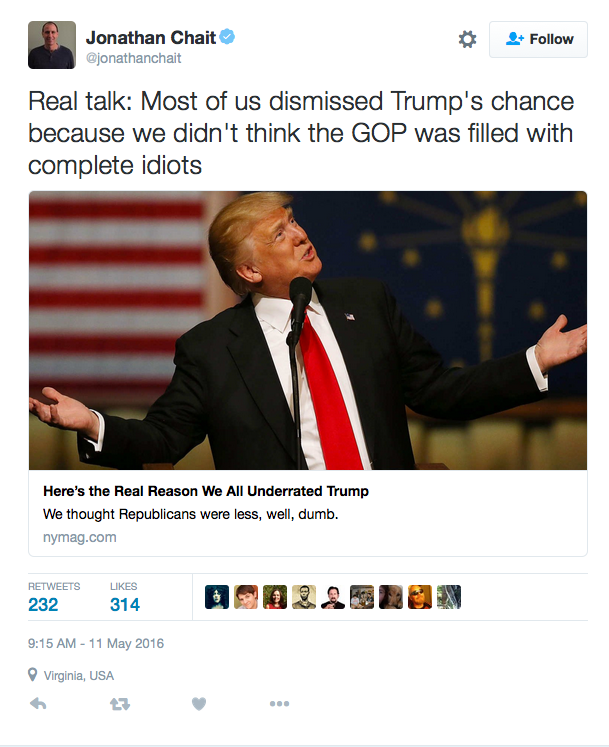
There is a lot wrong with this besides arrogance, which I discussed in a rant on Twitter.
Trump voters may not vote the way I want them to, but after having spent the last five years working in (and having grown up in) parts of the US few visit, they are not dumb. They are doing whatever any other voter does: Trying to use their vote to better their particular situation (however they define that).
Labeling them dumb is simply a way of not trying to understand their situation, or what they value.
In choosing a candidate, a voter is buying into that candidate. It is, in an oversimplified way, like buying a stock. In that sense, it is helpful to use some basic analysis from finance, to look at how/why voters make the choices they do.
A few assumptions/observations

(Outside Omaha, Nebraska)
1) The US is bifurcated into two (actually a few more, but at the highest level only two). There are the “elites” and there is everyone else. These two Americas are segregated, culturally, socially, geographically, and economically. They have gotten more segregated over the last 40 years.
The growing income inequality is one measure of this. Yet it is more than that. The elites have removed themselves physically. They cluster in certain towns (NYC, LA, Northern Virginia, Boston) and within those towns in certain neighborhoods. They dress differently. They eat differently. There is a culture of elitism.
The best single measure of elitism I see is education, the type and amount. A Harvard professor of sociology is more similar (despite different politics) to a Wall Street trader, than either is to a truck driver in Appleton, Wisconsin, or a waitress in Selma, or a construction worker in Detroit.
If you earn your money using your intellect (like Jonathan Chait), you score high on elitism, and you probably view the world very differently from a man driving heavy equipment in Birmingham, Alabama, who uses his body for labor. Or a guy flipping burgers in the Bronx.
2) The elites by and large control things. They control the money. They control the rules on how you make it. They also control the social capital. They set/define what is acceptable, what is allowable, and what is frowned on. (In snazzy academic speak: The elites define what is valid cultural capital, and have defined it to further empower themselves)
What does this have to do with voting?
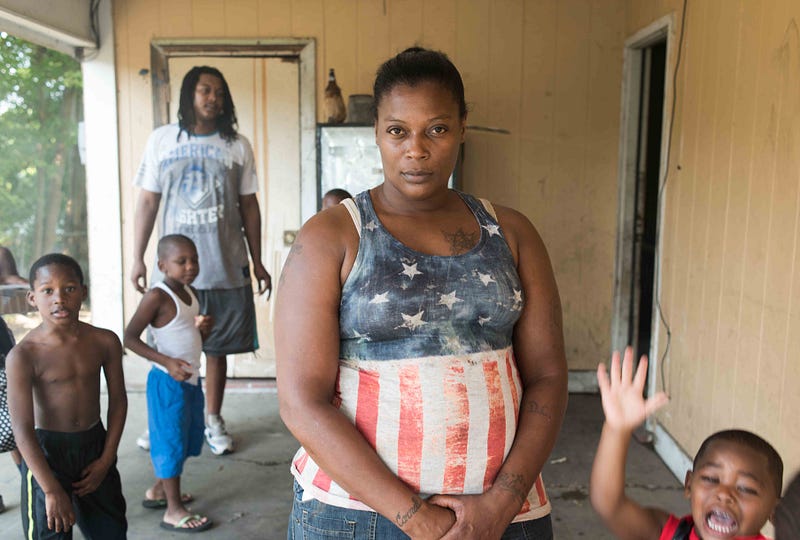
(Yazoo City, Mississippi)
Given these two assumptions I use a simple model, borrowed from finance, to explain voting decisions. (If you don’t want math, jump to the bottom conclusion section.)
This is a graph of how I see value vs. elitism in the US. Value is not just economic. It is social. It is a measure of how society sees someone. How it measures their validity, both economically and socially.
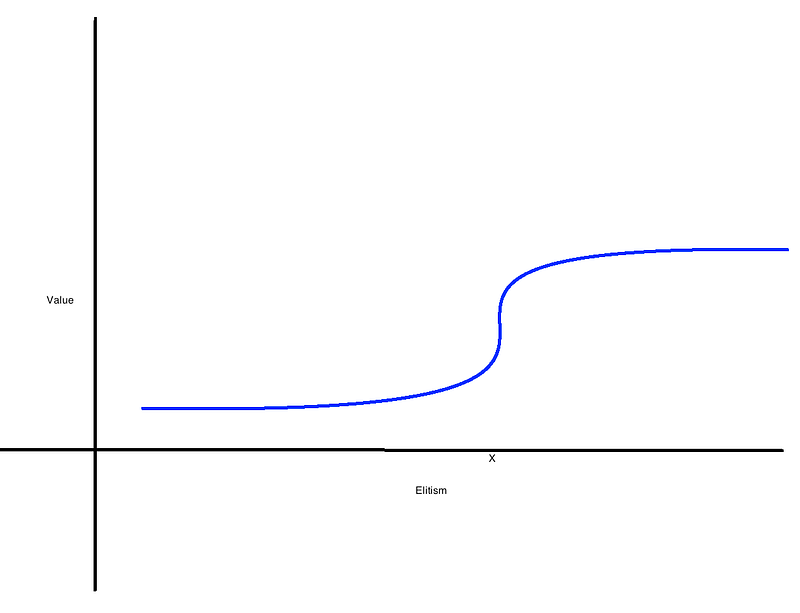
It is roughly a two-tiered system, with a big jump up at X. The jump up can be seen in data on income versus education, with the jump at college education.
Yet it isn’t confined to just education. It is about where someone lives. What they like. How they dress. What they do for a living. An African American kid growing up in the Mississippi Delta is far to the left of that X. So is an insurance salesman in Kentucky. Or auto mechanic in South Buffalo.

(Talledaga, Alabama)
To the right of the X is pretty much anyone with a graduate degree. All bankers, folks in tech, folks in journalism, etc. Anyone who primarily uses, or needs, post-college training, regardless of if they have it.
That graph is the “payout function” one has in mind when choosing a candidate.
That payout function is the same regardless of the candidate. Where a voter lies on that graph (to the far left, in the low value zone, or to the right of the X), is largely self-defined. It is how they think the world values them.
When choosing a candidate few voters can be certain what a candidate will deliver for them. Each voter can, however, draw a mental distribution of possible outcomes.
So, they might view themselves as starting far to the left of the jump up
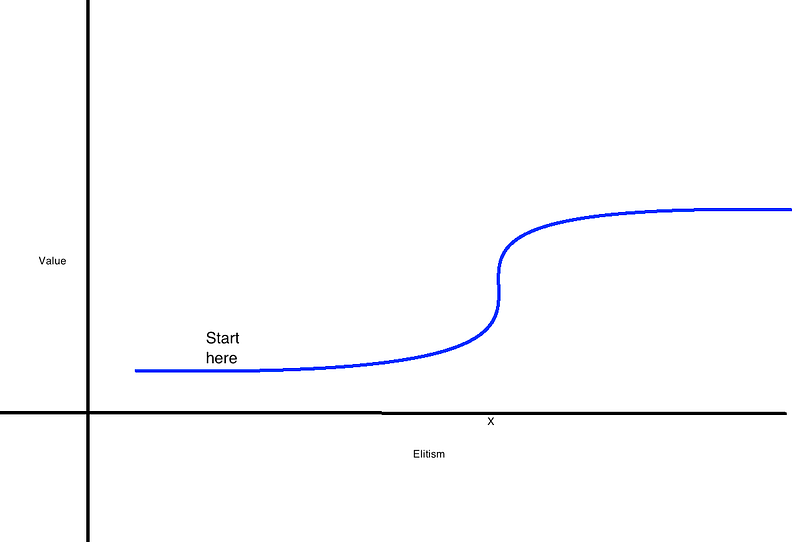
But the candidate they vote for will hopefully move them way to the right — Where exactly they cannot know, but they can draw a rough distribution.
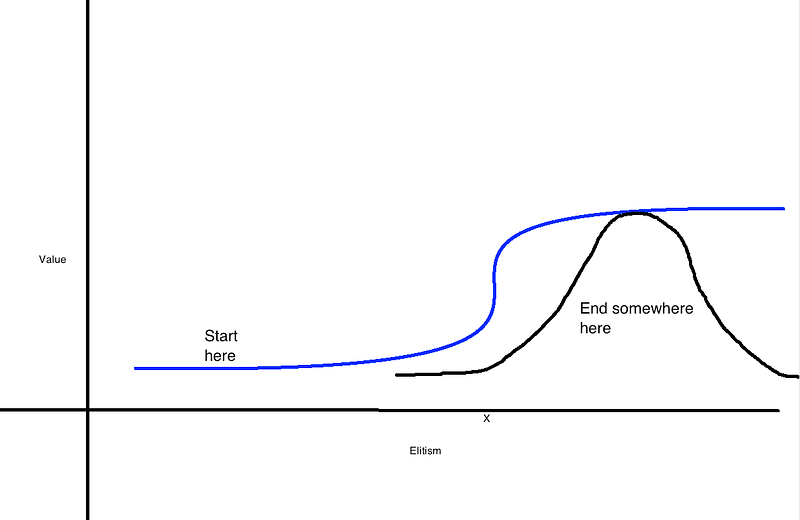
The candidate can do this by changing what the definition of elitism is (Math aside: They can also change the value function. But I am holding one thing steady.)
There are two things going on. One is the center of the distribution, the other is the width.
The center is the mostly knowable things. The width of the distribution, or the uncertainty, is the unknowable. The volatility.
How does a voter chose a candidate? They come up with a probability-adjusted valuation. They multiple the chance of each outcome versus the value of that outcome. The result is one number. They chose the candidate that maximizes that number for them.
A few quick things
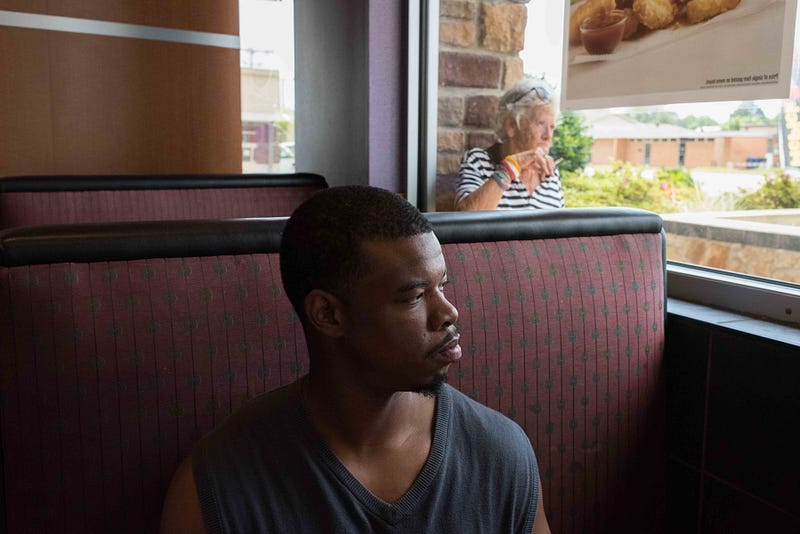
(Natchitoches, Louisiana)
1) Voters in the lower tier want to move to the higher tier. For African-Americans that means supporting the Clintons, who have spent 40 years working to convince African-Americans they will work for them, socially and economically. They may not like where they start, but Hillary is clearly working for them.
Many working class whites presently don’t feel they have that. In the past they voted the same as elite Republicans, who they saw as sharing their values, and would move them higher.
That hasn’t happened. Economically or socially. The bailout of Wall Street (and in their view, acquiescence on social issues like gay marriage) was the final blow.

(McDonalds. Natchitoches, Louisiana)
Frustrated with broken promises, they gave up on the knowable and went with the unknowable. They chose Trump, because he comes with a very high distribution. A high volatility. (He also signals in ugly ways, that he might just move them, and only them and their friends, higher with his stated policies).
As any trader will tell you, if you are stuck lower, you want volatility, uncertainty. No matter how it comes. Put another way. Your downside is flat, your upside isn’t. Break the system.
The elites loathe volatility. Because, the upside is limited, but the downside isn’t. In option language, they are in the money.
To put it in very non-geeky language: A two-tiered system has one set of people who want to keep the system, and another that doesn’t. Each one is voting for their own best interests. (Yes, there are always altruistic people. But…..)
Conclusion that doesn’t require math
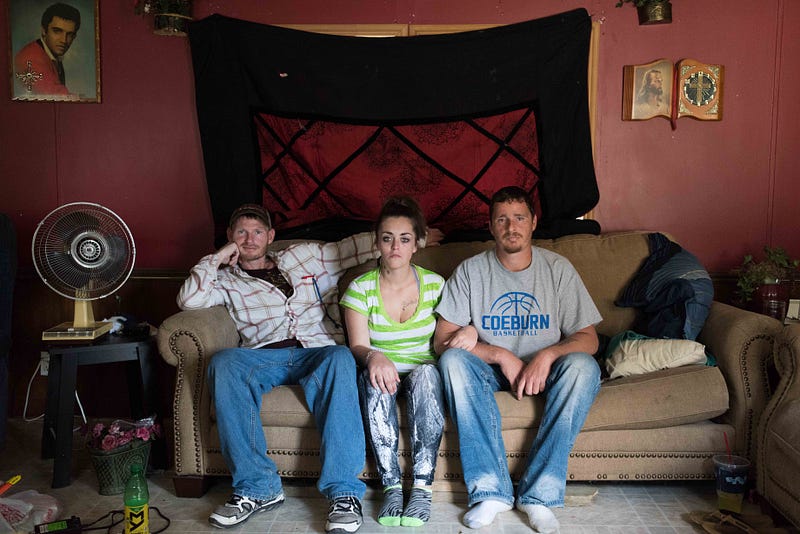
(Coeburn, Virginia)
Where do most of the press and elites get it wrong? They don’t believe that we live in a two-tiered system. They don’t believe, or know they are in, the top tier. They also don’t understand what people view as value.
When the Democrats under Clinton in the early ‘90s shifted towards a pro market agenda, they made a dramatic shift towards accepting the Republicans definition of value as being about the economic.
Now elites in both major parties see their broad political goal as increasing the GDP, regardless of how it is done.
This has failed most Americans, other than the elite, in two ways. It has failed to provide an economic boost (incomes are broadly flat), and it has forgotten that many people see value as being not just economic, but social. It has been a one-two punch that has completely left behind many people.
For many people value is about having meaning beyond money. It is about having institutions that work for you. Like Church. Family. Sports Leagues.
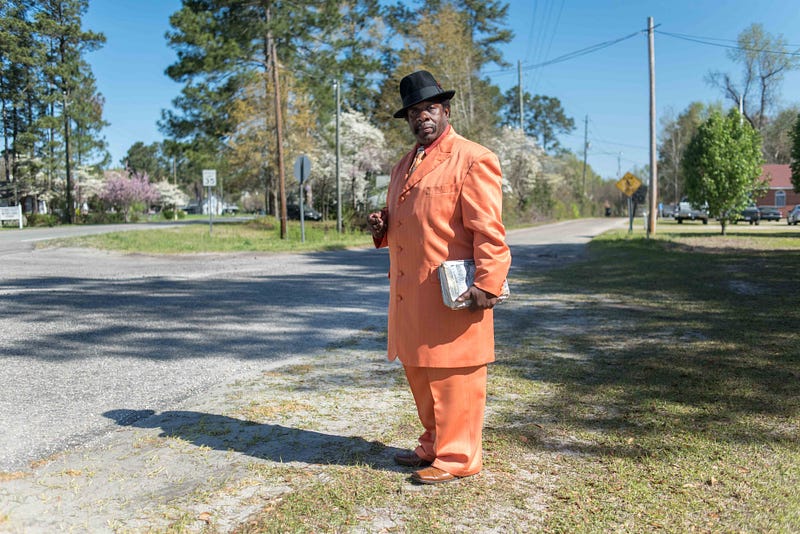
(Outside Florence, South Carolina)
In addition, the social nature of jobs has been destroyed. Unions provided more than just economic power, they also provided social inclusion.
You can scrap this entire analysis as silly if you want, but please try and understand the core point missing from much of the current dialogue — large parts of the US have become completely isolated, socially and economically.
Kids are growing up in towns where by six, or seven, or eleven, they are doomed to be viewed as second class. They feel unvalued. They feel stuck. They are mocked. And there is nothing they feel they can do about it.

(Morton, Mississippi)
When they turn to religion for worth, they are seen by the elites as uneducated, irrational, clowns. When they turn to identity through race they are racists. Regardless of their color.
The only thing they can do, faced with that, is break the fucking system. And they are going to try. Either by Trump or by some other way.

(Penny Stringfield who lost her son to an overdose. Binghamton, New York)
My work these days is listening to those caught in the trap of addiction. Turning to drugs is one way to deal with the frustration, and the sense of isolation.
It isn’t at all surprising to me, that where I go for my work on addiction, I also see political frustration.
I got a lot of places to go these days.
(You can read about some of the places I have already been. Like Buffalo, Selma, and Kingsport Tennessee.)
Next
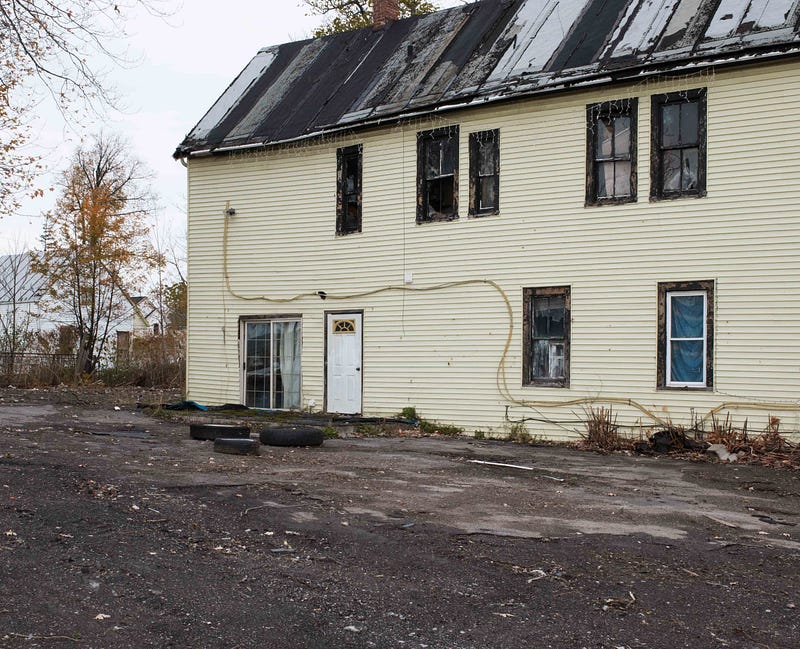
(Buffalo, New York)
What about Sanders voters? What should Hillary’s general election strategy be? What should Trump’s strategy be? What about the “wealthy” Trump voters?
All that in part two. Now. Send me your questions and criticisms. Best to tweet at me here.
https://twitter.com/Chris_arnade
I will take them all. Except one’s that say my graphs/plots suck. They do. Sorry.
Chris Arnade -- I photograph and write things (Addiction). I used to trade things (Bonds). I used to study things (Math). Writer for Guardian etc...